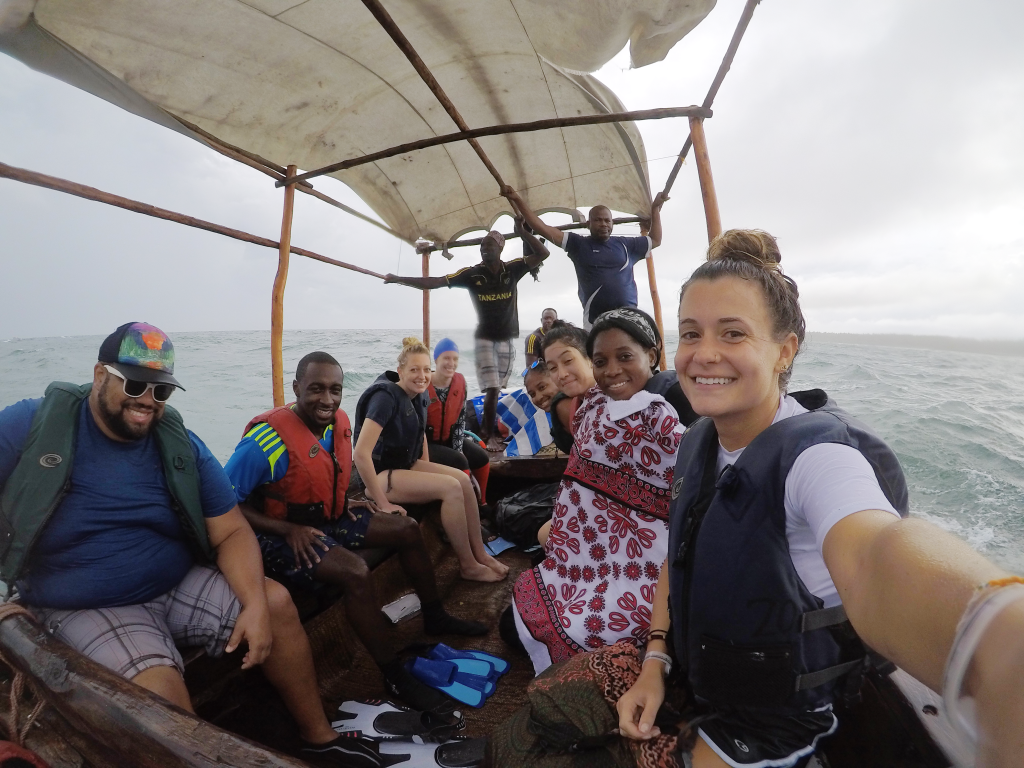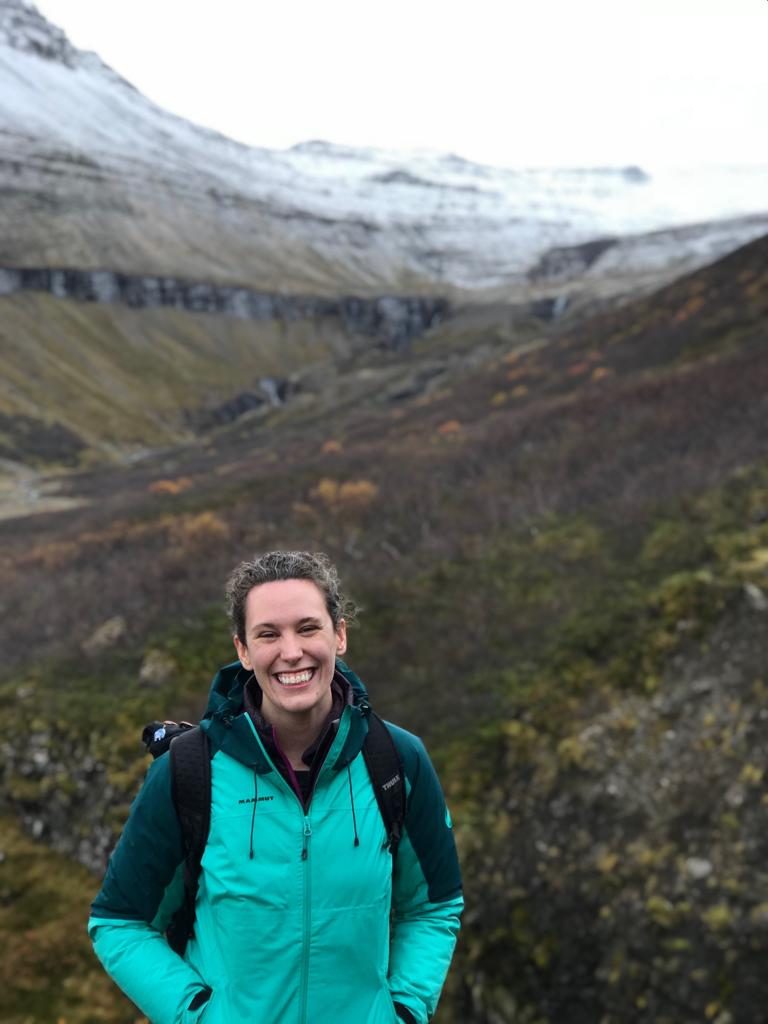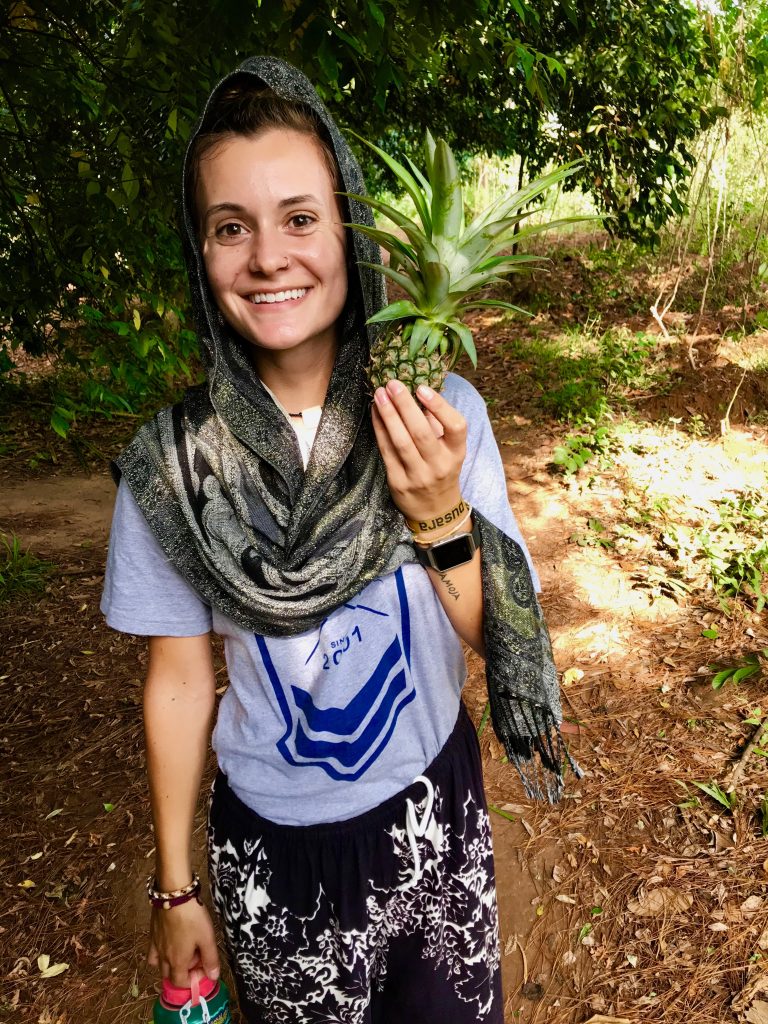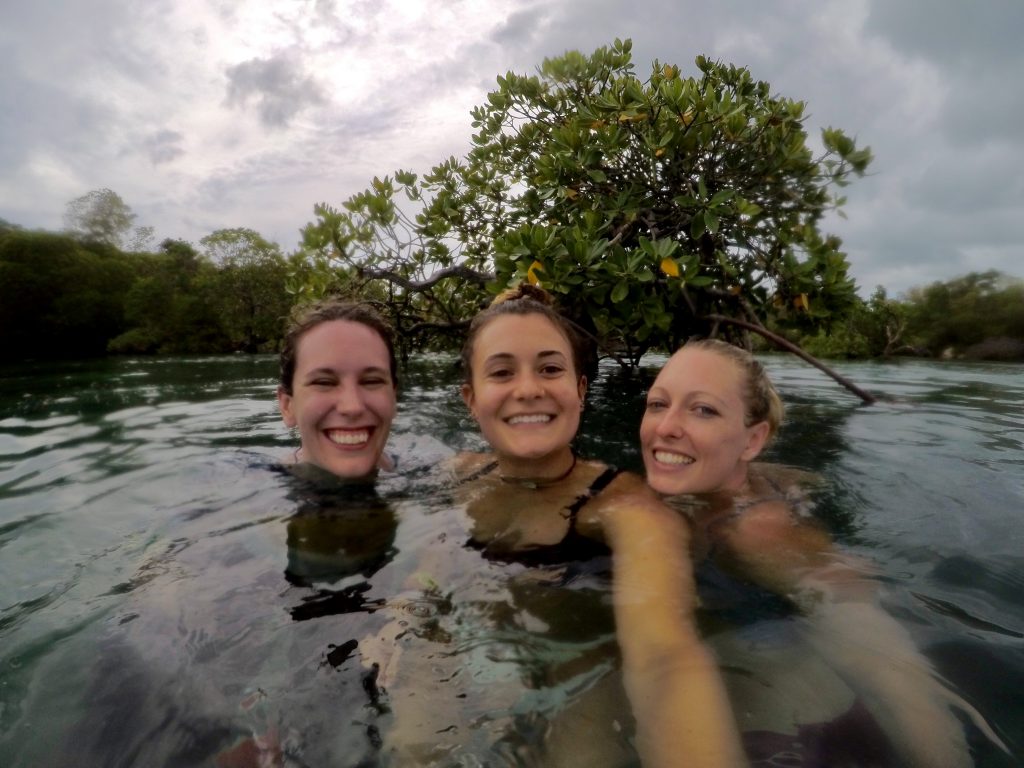Driven by experience: Study Abroad alumnae and climate change master’s students Cass Madden and Micalea Leaska
April 30th, 2019 | Alumni, SIT Graduate Institute, SIT Study Abroad

SIT students Micalea Leaska and Cass Madden are studying Climate Change and Global Sustainability in order to work in fields that aren’t directly related to climate change.
They’re part of SIT’s first global MA program, which launched in fall 2018 and takes a broad approach to the subject of climate change. Taught entirely abroad, students take a range of issues-based courses and conduct hands-on fieldwork in Iceland and Tanzania, countries that provide a close look at the effects of and community responses to climate change in arctic and tropical regions.
The mix of science and issues coursework is aimed at preparing students for careers in climate change policy and advocacy. During their third semester, students do a practicum at an organization anywhere in the world that fits their career goals.

For Madden, climate change provides the context for understanding her driving passion: the issues of indigenous people worldwide. “Indigenous people tend to be disadvantaged in every way. Indigenous rights at their core are deeply tied to environmental rights. The environment is a tremendous part of how indigenous people understand the world, and land rights are central. That’s an issue that’s changing as the climate changes,” she says.
Leaska wants to work in public health. She’s more interested in challenges like water sanitation than in studying medicine, and says SIT’s Climate Change degree offered an intriguing way to approach that, in part because it’s not only about the hard science, but also about policy. “One thing that appealed to me was the openness of the degree,” she says. “It’s able to capture a lot of different interests.”
To her point, Leaska says the students in her cohort are planning to go into all range of fields, including government policy and urban planning. ”Not a single one of us is overlapping with other students’ career plans.”
Both Leaska and Madden said they chose SIT for their graduate studies because of something else they share: undergraduate experience with SIT Study Abroad. Madden, who studied with SIT Peru: Indigenous Peoples and Globalization in spring 2015, plans to return to Peru for the practicum phase of her master’s program.

In fall 2016, Leaska was part of the SIT program Tanzania-Zanzibar: Coastal Ecology and Natural Resource Management,whose director, Dr. Richard Walz, also chairs the climate change master’s program. That had a lot to do with her choice of SIT Graduate Institute. “Richard was an awesome advocate for students. He really tries to make sure your research is getting noticed.”
Leaska’s research involved waste management of disposable diapers and how that connects to environmental awareness among women in Zanzibar. For her MA practicum, she’ll work in Ecuador with an organization called Waterstep, researching water sanitation and public health. Waterstep helps communities that have suffered from waterborne diseases develop water purification systems. “Each system runs independently and it’s completely sustainable. Community members pay something like three dollars per month, or whatever amount works in that community.”
Leaska will look at the socioeconomic variables as well as the health impacts of communities’ developing safe water systems.
In Cusco, Peru, Madden will work with the organization ANDES, which promotes the Andean indigenous idea of “sumaq kausay,” a “holistic vision” focused on the connections between humans and the Earth. The organization is near the International Center for the Potato seedbank which, she says, worked with ANDES to help a coalition of indigenous communities bring the potato – which originated in the region – back into prominence in local agriculture via what she describes as an agricultural “park.” Madden will help create a spatial model of that park to help ANDES understand the variables which have made it a success. That model may then, she explains, help partner organizations identify sites for similar projects elsewhere, including Mexico (for corn) and Ethiopia (for coffee).

Leaska and Madden say what they’ve learned and how they’ve learned it, in terms of climate change science, policy, and research are a great fit for the careers they want.
“I feel like each of us is leaving with an incredible education,” says Leaska. The work load of grad school may seem like a lot, “but everyone is ending up with traits that are going to be extremely desirable for employers. And the SIT network [of alumni and faculty] is incredible.”
Madden echoes those sentiments. “I really liked the idea of being able to spend time abroad as a graduate student; it’s what SIT does well. This is a new model for a master’s degree, but I had faith that SIT’s many years of experience running programs abroad meant the program would be well-run and thoughtful.”
“In most grad programs,” Madden continues, “people tend to write a thesis based on going to the library and reading, or maybe doing some interviews. It’s definitely atypical in a master’s program to spend three or four months in the field doing research.”
Though she says being in the field also brings challenges, Madden sees the program as “an incredible opportunity” for students interested in sustainable development and environmental issues. “This is a great program for figuring out how an interest you have can interface with the real world. It’s driven by experience, but it’s also academically rigorous and guided by an applied approach. That’s helpful for anyone who’s looking to work in the world.”
